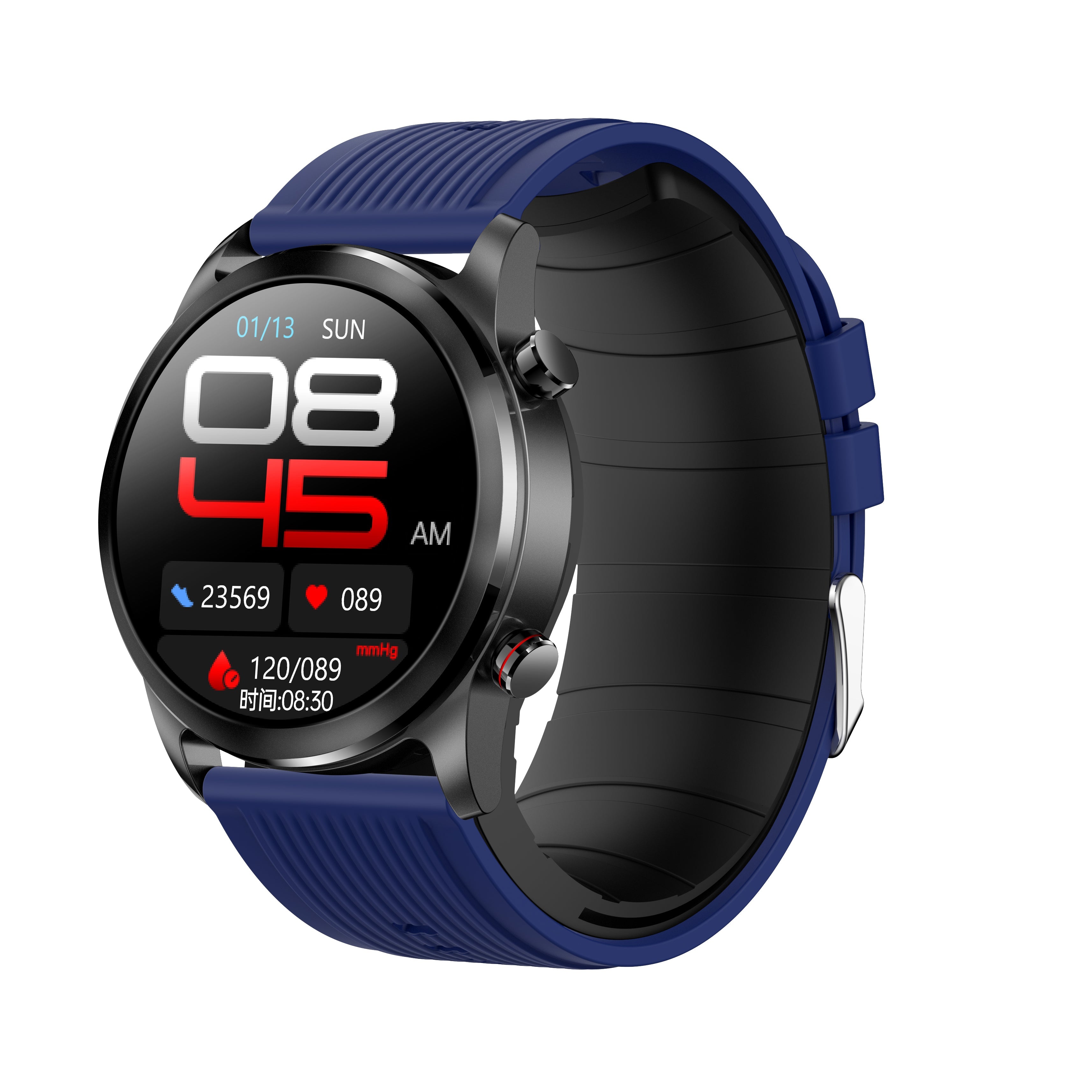Montre connectée avec suivi du sommeil
Le décalage horaire, l'acolyte indésirable des voyages longue distance, peut transformer l'excitation d'arriver à une nouvelle destination en une bataille contre la fatigue et les troubles du sommeil. Ce phénomène se produit lorsque votre horloge biologique interne, ou rythme circadien, a du mal à se synchroniser avec un nouveau fuseau horaire. Dans ce blog, nous allons nous pencher sur ce qu'est le décalage horaire, ses symptômes courants et les stratégies pratiques pour le vaincre, afin de vous assurer de tirer le meilleur parti de vos voyages sans tomber dans les griffes de la fatigue.
Qu'est-ce que le décalage horaire ?
Le décalage horaire est une perturbation temporaire de l'horloge interne de votre corps causée par le passage rapide de plusieurs fuseaux horaires. Votre rythme circadien, responsable de la régulation des cycles veille-sommeil, des habitudes alimentaires et de la température corporelle, a besoin de temps pour s'adapter au nouvel horaire imposé par votre destination.
Symptômes courants du décalage horaire
-
Troubles du sommeil :
- Difficulté à s’endormir ou à rester endormi pendant la nuit.
-
Fatigue diurne :
- Se sentir fatigué, léthargique et moins alerte pendant la journée.
-
Problèmes gastro-intestinaux :
- Maux d’estomac, indigestion ou changements dans les habitudes intestinales.
-
Difficulté de concentration :
- Altération de la fonction cognitive, difficulté de concentration et pertes de mémoire.
-
Changements d'humeur :
- Sautes d’humeur, irritabilité et sentiment général de malaise.
Combattre le décalage horaire : stratégies pour une transition en douceur
-
Ajustez votre horaire de sommeil avant de voyager :
- Décalez progressivement vos heures de coucher et de réveil quelques jours avant votre voyage pour les adapter au fuseau horaire de votre destination.
-
Restez hydraté :
- Buvez beaucoup d’eau avant, pendant et après votre vol pour éviter la déshydratation, un facteur aggravant courant du décalage horaire.
-
Exposez-vous à la lumière naturelle :
- Passez du temps à l'extérieur à la lumière naturelle dès votre arrivée. L'exposition au soleil aide à réinitialiser votre horloge interne et à vous adapter au nouveau fuseau horaire.
-
Utilisez les somnifères de manière stratégique :
- Envisagez d’utiliser des somnifères comme la mélatonine, mais utilisez-les de manière stratégique et sous la supervision d’un professionnel de la santé. La mélatonine peut aider à réguler les cycles veille-sommeil et à minimiser les symptômes du décalage horaire.
-
Faites une sieste judicieusement :
- De courtes siestes (20 à 30 minutes) peuvent être bénéfiques pour lutter contre la fatigue, mais évitez les longues siestes qui pourraient perturber votre sommeil nocturne.
-
Restez actif :
- Pratiquez une activité physique légère dès votre arrivée. L’exercice aide à réguler votre horloge biologique et favorise un cycle veille-sommeil sain.
-
Adapter les repas à l'heure locale :
- Adaptez votre horaire de repas à l’heure locale de votre destination. Cela permet à votre corps de s’adapter plus rapidement au nouveau fuseau horaire.
-
Faites attention à votre consommation d’alcool et de caféine :
- Limitez votre consommation d’alcool et de caféine, surtout à l’approche de l’heure du coucher, car ils peuvent perturber vos habitudes de sommeil.
-
Créez un environnement de sommeil confortable :
- Faites en sorte que votre environnement de sommeil soit propice au repos. Utilisez des rideaux occultants, contrôlez la température de la pièce et choisissez un matelas et des oreillers confortables.
Bien que le décalage horaire soit un défi inévitable pour les voyageurs réguliers, la mise en œuvre de stratégies proactives peut atténuer considérablement son impact. En comprenant les causes et les symptômes du décalage horaire et en intégrant des conseils pratiques à votre routine avant et après le voyage, vous pouvez assurer une transition en douceur et tirer le meilleur parti de votre temps dans un nouveau fuseau horaire. N'oubliez pas qu'un voyageur bien reposé est un aventurier plus énergique et prêt à explorer. Bon voyage !
En parlant de surmonter le décalage horaire, la technologie est devenue un allié précieux dans notre quête de bien-être en voyage. Montre connectée pour médecin de la pression artérielle, par exemple. Ce compagnon intelligent s'adapte parfaitement à vos fuseaux horaires changeants, en ajustant automatiquement son chronométrage en fonction de votre emplacement actuel. De plus, il est équipé de fonctions avancées de surveillance du sommeil, vous permettant de garder un œil sur vos habitudes de sommeil et de vous assurer que vous obtenez le repos dont vous avez besoin pour vaincre le décalage horaire et profiter au maximum de vos aventures. Grâce à ces fonctionnalités de montre connectée, la technologie ne se contente pas de vous aider dans vos déplacements ; elle améliore votre bien-être d'une manière qui s'adapte parfaitement aux défis posés par le décalage horaire.










